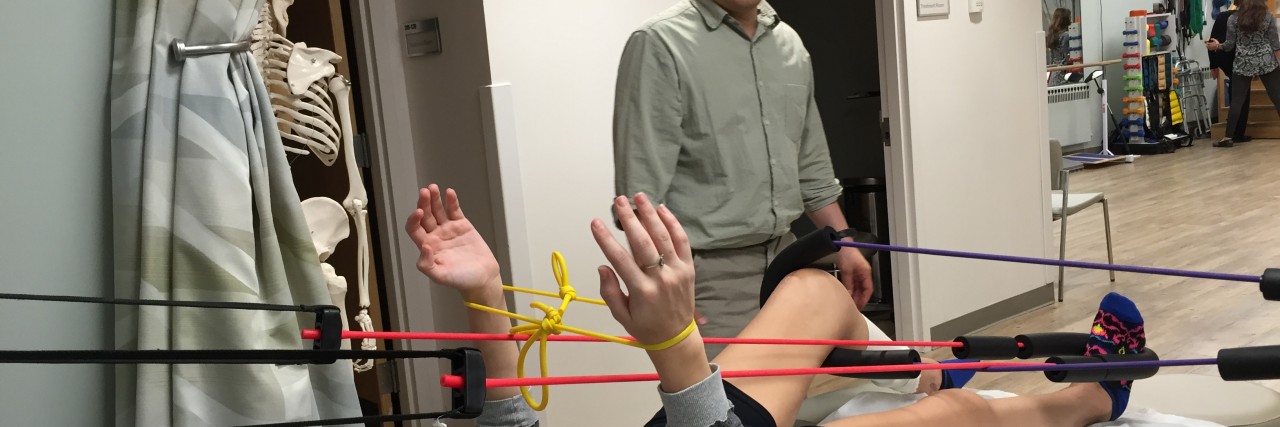9 Signs That You've Found a Good Doctor
Finding a good doctor is like finding a needle in a haystack. Am I right?
Consider the next nine things on your next doctor visit. Do your doctor and his office have these qualities?
If not, I strongly urge you to consider you find another health care provider.
It’s your life, and you deserve the best!
Are you getting the care you deserve? Let’s find out…
1. A Helpful Staff
You can tell a lot in how a doctor’s office is run by how their receptionists treat you.
Are they helpful?
How easy is it to get an appointment?
Are they happy to get you the paperwork you need?
Do they communicate effectively for you when you can’t speak to the doctor?
They are the gatekeepers for the physician, and they are the windows to your treatment.
2. The Doc Does His Homework
It’s so refreshing when you go to an appointment and your doctor already has his or her “game plan.”
This is important because it shows they respect and value you. They also have empathy for your disease and want to serve you as best as they can.
There’s nothing worse than going to an appointment when your doctor didn’t so much as read your chart. Of course they are busy, but you aren’t patient 93,746.
You have a name and should be treated like the human being you are.
If you are scheduled for follow-up and testing, you need to know how to proceed.
Did they call you to get the results? What’s the plan of action?
Make sure your doctor has excellent follow-through.
3. A Two-Way Communicator
To have proper care, you need to communicate…efficiently.
You in no way, shape or form should be rushed.
It’s not your problem how behind they are… your appointment is your time.
Your doctor cannot be doing all the talking, and you cannot be asking 108,394,893 questions, either.
You need to have a proper dialogue.
Just as much as they need to explain your diagnosis, treatment plan, and prognosis, you need to be able to understand it and re-explain it to yourself and others with ease.
4. Knowledgeable in Diagnosis
Chronic illness is complicated and not every condition has a “one size fits all” plan.
You wouldn’t see an eye doctor if you need dental work.
So you shouldn’t see someone who treats Crohn’s disease when you have rheumatoid arthritis.
“Autoimmune disease” is a broad term. What diseases do they treat? Joints? Gastric? Fibromyalgia? Etc.
My advice is to make sure they are disease-specific experts. If they are not, they should refer you to a specialist.
Does your doctor have specialized knowledge in the disease he or she said you have? How many cases has he successfully treated in the past?
5. Develops an In-Depth Treatment Plan With a Back-Up Plan
Getting a successful diagnosis is hard… and getting a treatment plan that works is even harder.
Does your doctor have a primary game plan? Does he or she have a backup and a third contingency plan?
Leaving you in the dark is not acceptable.
You should know how things are going to progress, for how long, and if that plan fails, what’s the next option?
6. They Respect Your Preferences
He or she needs to listen to your preferences on how you want to manage your disease.
If they recommend an aggressive form a treatment before you try other options, you need to push for what you desire.
If he makes you feel any way other than supported, he’s got to go.
7. Considers Outside Help
Not every doctor knows it all. Maybe they specialize in your disease, but they might need some advanced expertise if your case is complicated.
They should always check their egos and feel comfortable asking other doctors for an opinion.
I make sure that I have all of my doctors in a constant open line of communication about my treatment plan. That’s how it should be.
Also, they should be supportive of you getting a second or third opinion. If they have your best interest in mind and are confident in their treatment plan, having another doctor confirm you are on the right path shouldn’t be a problem.
8. Is Well-Versed in Dietary and Lifestyle Modifications
If a physician tells you that you can eat cupcakes and drink tequila and it won’t affect your body/disease when it actually does (this happened to me, true story… and wouldn’t that be nice!) you need to run away, fast.
How you treat your body is important. Although it’s sometimes OK to emotionally eat or Netflix all day… your body should be your temple. (Cliche but true!) It’s fighting an autoimmune war in there, so be kind.
Having a doctor on your side who will tell you (or refer you to someone else) what the best food and exercise programs are for you can be super important in slowing the progression of your disease.
9. Always Has An Open Line of Communication
Ever leave the doctor’s office and say “Doh, I wanted to ask them something else?”
Being able to communicate with your doctor in these moments is important.
If you have a follow-up question, idea or something to share, you need to be able to communicate with them after the fact.
Ask what their communication preference is. Speaking in between appointments is a must.
While it might be difficult, it’s necessary for you to advocate for yourself. You and you alone are responsible for your health and well-being.
Make sure you are getting the care you deserve!
Editor’s note: Any medical information included is based on a personal experience. For questions or concerns regarding health, please consult a doctor or medical professional.
This blog was originally published on Bliss and Health.

